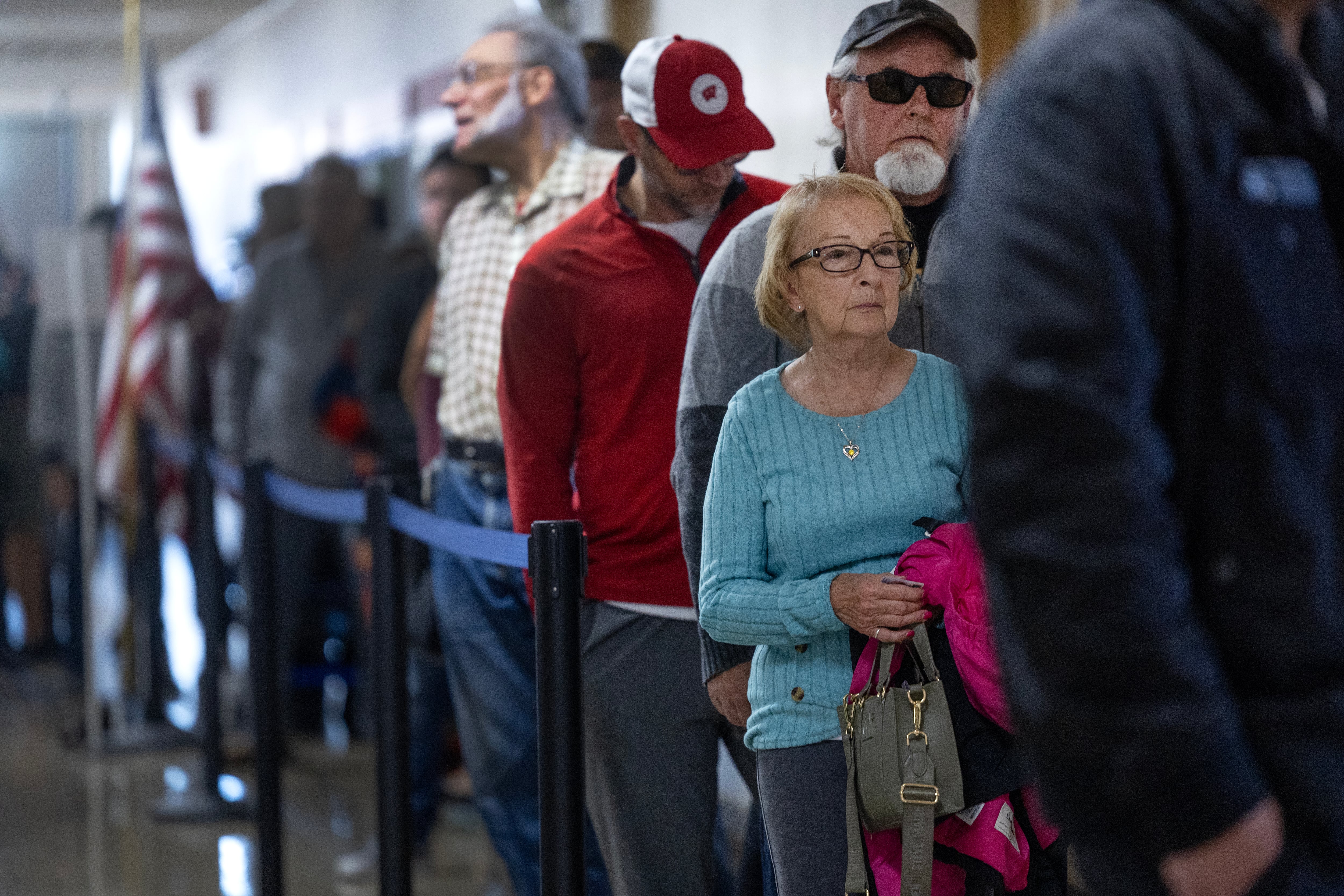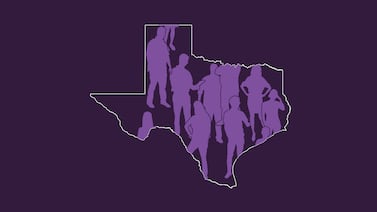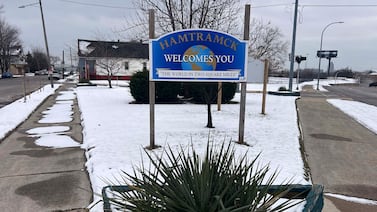Votebeat is a nonprofit news organization reporting on voting access and election administration across the U.S. Sign up for Votebeat Wisconsin’s free newsletter here.
Voting delays caused by printing issues persisted across Wisconsin on Thursday morning, the third day of early in-person voting, as election officials implemented workarounds to mitigate long waits at some polling sites.
The root cause of the printing issue isn’t clear yet, but the result is that the labels workers stick on absentee ballot envelopes, typically before voters mark their ballot, could take as much as 15 minutes each to print. Election workers or voters can handwrite most of the information that’s usually on the printed label, but that could introduce some inaccuracies.
Wisconsin voting platforms have had problems before during early voting, said Claire Woodall, former executive director of the Milwaukee Election Commission and a current senior adviser at the election reform group Issue One.
“I don’t think we’ve had any security issues or irregularities result from outages like this,” she said. “It’s just really, really time consuming. But it’s good that it’s happening at the beginning of early voting,” rather than toward the end, when it could create a heavy backlog.
The delay involved use of WisVote, the state’s voter registration database and election management system. Election officials use the system to look up voters and record their voting activity. WisVote provides the information like the voter’s name and address that goes on the labels pasted on absentee ballot envelopes, which are also used for early voting. That label isn’t printed for Election Day ballots.
Election officials said that on Tuesday and Wednesday, the system was quicker in the early morning and evening, when fewer election workers were accessing it. It was running better after it was rebooted just before noon on Thursday, said Ann Jacobs, a Democratic commissioner on the Wisconsin Elections Commission. By Thursday, 593,000 absentee ballots had been returned.
Early voting in Wisconsin is technically in-person absentee voting, in which voters request and receive an absentee ballot at a polling site and then record their votes. Even though voters are physically at a polling place, their ballots go in absentee envelopes, which since 2020 have typically had typed and printed labels attached in front with voters’ information.
Handwriting the information could lead to errors if voters’ writing isn’t legible or if they spell something incorrectly, Woodall said. WisVote is typically more reliable, with clearly printed information that voters could correct if it’s wrong.
Across the state, election officials implemented different policies and workarounds to address the delays.
In Madison, printing labels was taking anywhere from five seconds to five or more minutes, city spokesperson Dylan Brogan said. When it’s taking longer, workers ask voters to write their information directly on the envelope instead, he said. To ensure each envelope eventually has a label, election officials are logging into the system in the evening, after voting hours, and working until midnight to print the labels for the ballots submitted during that day, Brogan said.
The printing system was working much better by 1 p.m. on Thursday than it did on Tuesday and Wednesday, Brogan said.
In Fort Atkinson, it took anywhere from 30 seconds to 15 minutes on Tuesday and Wednesday to print each label, Deputy Clerk Courtney Thom said. As of early Thursday morning, the system was quicker. If it slowed down again, she said, their contingency plan would be to write voter information instead of printing labels.
Election officials in Baraboo switched to handwriting almost immediately after noticing the printing delays, City Clerk Brenda Zeman said. On Thursday morning, she said, the system was running better, and they switched back to printing labels.
In Green Bay, City Clerk Celestine Jeffreys set a one-minute threshold for printing labels. If printing labels takes longer than that, election officials switch to handwriting the information. At noon Thursday, Jeffreys said most labels were printing in under a minute.
It’s still unclear why the labels are slow to print.
On Tuesday, the Wisconsin Elections Commission attributed the issue to higher-than-expected turnout. The commission said on Tuesday it increased system capacity and solved the problem. But problems continued Wednesday and into Thursday morning, and the commission said Thursday that it’s still trying to understand the cause.
“At this time, there is no reason to believe this is affecting other areas of election administration or state government, nor is there any reason to believe the printing delays were caused by a cyberattack,” the commission said.
Alexander Shur is a reporter for Votebeat based in Wisconsin. Contact Alexander at ashur@votebeat.org.




